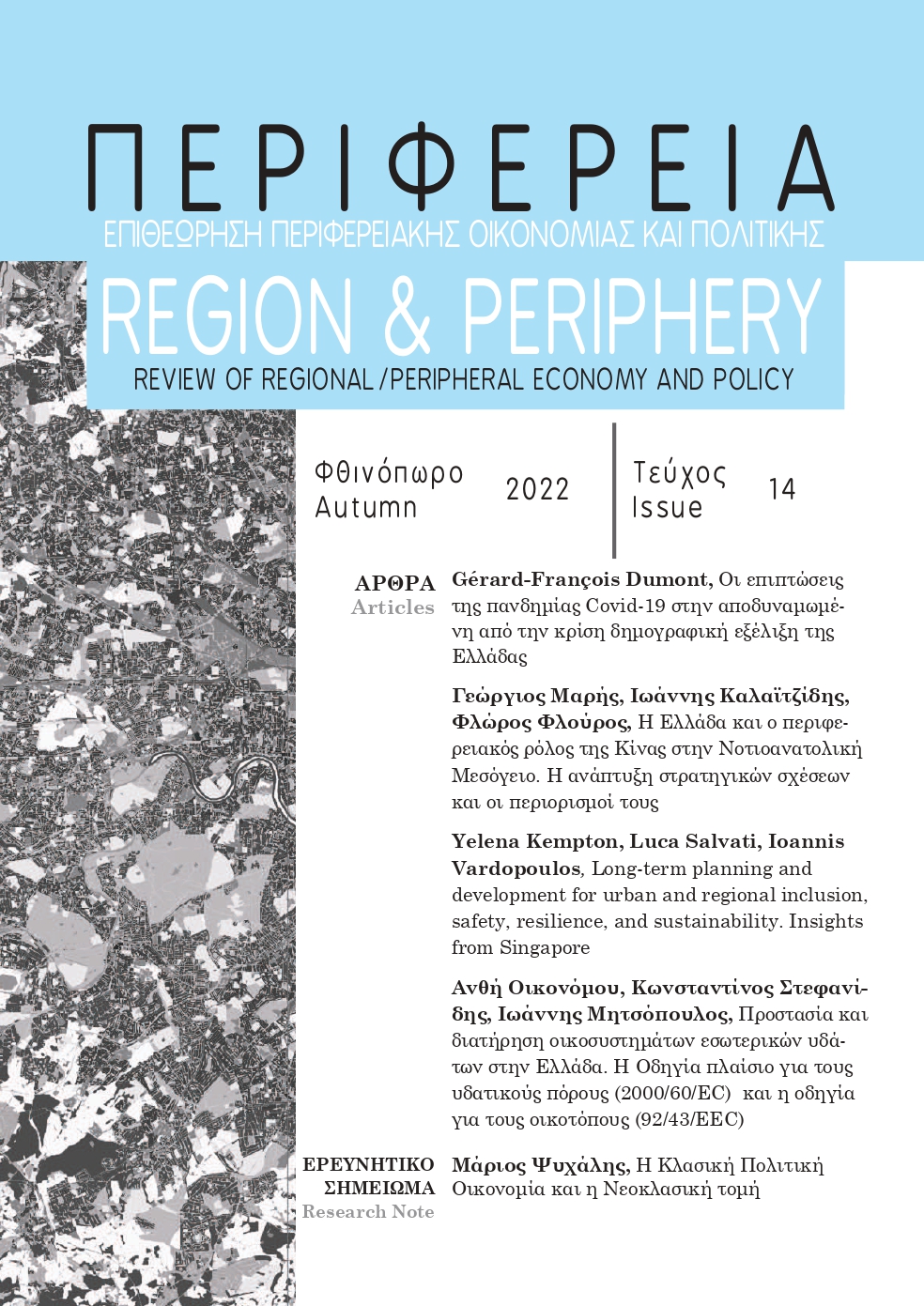Protection and Conservation of freshwater ecosys-tems in Greece: The Water Framework Directive (2000/60/EC) and the Habitats Directive (92/43/EEC)
Abstract
Freshwaters are among the most threatened ecosystems worldwide due to the wide range of anthropogenic pressures they are facing. At the European level, freshwater ecosystems are protected by the Water Framework Directive (WFD, 2000/60/EC), a keystone policy in environmental management in Europe. In parallel, the implementation of WFD also contributes to the conservation of biodiversity, given that important aspects of its implementation satisfy the aims and requirements of the two major Nature directives, the Habitats Directive (1992/43/EEC) and the Birds Directive (2009/147/EU). In the current study, the present-day situation, the national developments and the approaches of other European countries in the field of environmental policy for the protection and conservation of freshwater ecosystems are presented. In addition, special emphasis is given on the critical evaluation of the Directives’ implementation after their harmonization in the Greek Law.
Article Details
- How to Cite
-
Oikonomou, A., Stefanidis, K., & Mitsopoulos, I. (2023). Protection and Conservation of freshwater ecosys-tems in Greece: The Water Framework Directive (2000/60/EC) and the Habitats Directive (92/43/EEC). Perifereia | Regional Integration: Politics, Economics, Governance, 14(14), 81–100. https://doi.org/10.12681/rp.32608
- Section
- Research Articles

This work is licensed under a Creative Commons Attribution-NonCommercial 4.0 International License.
Authors who publish with this journal agree to the following terms:
· Authors retain copyright and grant the journal right of first publication with the work simultaneously licensed under a Creative Commons Attribution Non-Commercial License that allows others to share the work with an acknowledgement of the work's authorship and initial publication in this journal.
· Authors are able to enter into separate, additional contractual arrangements for the non-exclusive distribution of the journal's published version of the work (e.g. post it to an institutional repository or publish it in a book), with an acknowledgement of its initial publication in this journal.
· Authors are permitted and encouraged to post their work online (preferably in institutional repositories or on their website) prior to and during the submission process, as it can lead to productive exchanges, as well as earlier and greater citation of published work.



